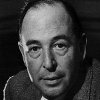“ The private poor man hath cities, ships, canals, bridges, built for him. He goes to the post-office, and the human race run on his errands; to the book-shop, and the human race read and write of all that happens, for him; to the court-house, and nations repair his wrongs. He sets his house upon the road, and the human race go forth every morning, and shovel out the snow, and cut a path for him. ”
Ralph Waldo Emerson, Nature (1836). copy citation
| Author | Ralph Waldo Emerson |
|---|---|
| Source | Nature |
| Topic | writing reading |
| Date | 1836 |
| Language | English |
| Reference | |
| Note | |
| Weblink | https://en.wikisource.org/wiki/Nature,_Addresses_and_Lectures/Nature |
Context
“To diminish friction, he paves the road with iron bars, and, mounting a coach with a ship-load of men, animals, and merchandise behind him, he darts through the country, from town to town, like an eagle or a swallow through the air. By the aggregate of these aids, how is the face of the world changed from the era of Noah to that of Napoleon! The private poor man hath cities, ships, canals, bridges, built for him. He goes to the post-office, and the human race run on his errands; to the book-shop, and the human race read and write of all that happens, for him; to the court-house, and nations repair his wrongs. He sets his house upon the road, and the human race go forth every morning, and shovel out the snow, and cut a path for him.
But there is no need of specifying particulars in this class of uses. The catalogue is endless, and the examples so obvious, that I shall leave them to the reader's reflection, with the general remark, that this mercenary benefit is one which has respect to a farther good.”
source


